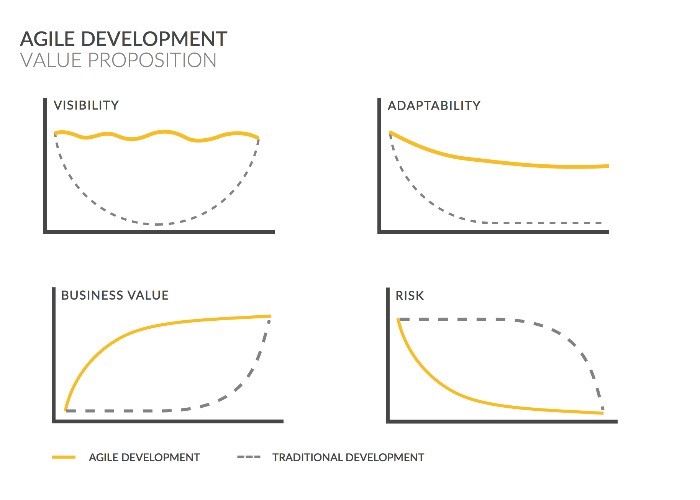Blogs

The importance of being Agile
- December 16, 2019
- Owen Hughes
Over the years different approaches to project management have evolved, with most organizations implementing and adapting them to suit their needs. Agile Project Management (APM) is prevalent now in IT software projects, adopted to drive fast iterative development or implementation, however, there are still a considerable number of organizations who do fully understand the process or see the benefits to adopting the agile approach.
One thing is sure, customers will never say “We have a strategic time sensitive project that we need to complete, we know that agile principles are not being followed in our business, so we need Metacube to help teach us how to develop our agile methodologies before we start the project. ”

However, in an ideal scenario that would be the best way to begin for any company that isn’t already getting the best value from strong Agile adoption.
As a specialist in delivering IT software projects, we are used to using Agile principles to ensure we deliver the best results for our customers, but we are often asked “Why is Agile so Important”?
The answer from our perspective is straight forward; you get the highest business value in the shortest time with the lowest risk. However, if you don’t have the basic agile fundamentals in place before any project starts the net effect is more often than not a delay to the project, or a project that doesn’t deliver all of the priority requirements, reversing the benefits of Agile. This is unfortunately very common.
The good thing is adopting proper agile principles does not need to be an arduous process, but it can often seem to be, so we have put together an article that discusses the key components of Agile Project Management and the questions that need to be asked and answered to ensure your project is successful. This paper will be published on the Metacube website shortly but in the meantime if you would like to know how and why we adopt and implement agile principles contact our CEO David Fordham or Steve Fouracre.